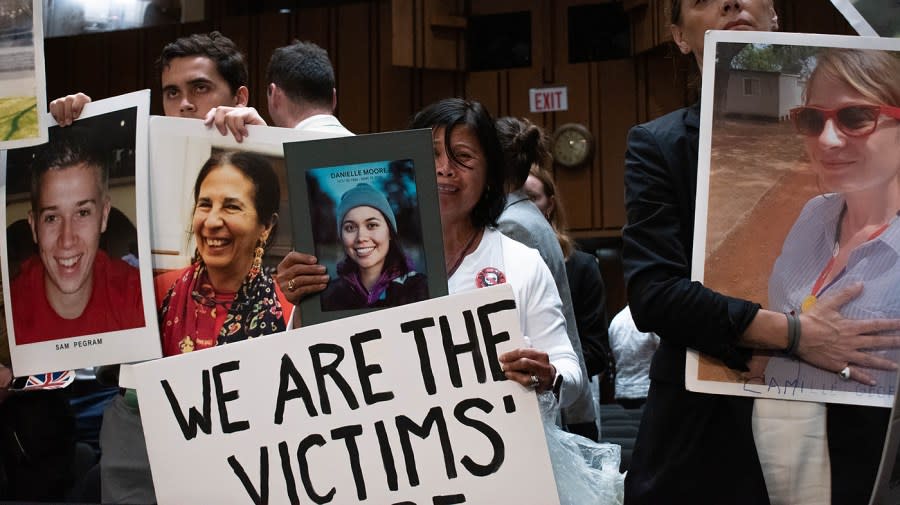In a dramatic turn of events, U.S. District Court Judge Reed O’Connor rejected a plea deal between Boeing and the Department of Justice that sought to resolve charges related to the company’s role in two deadly 737 Max crashes. The decision highlights ongoing tension between corporate accountability and the judicial system’s oversight in cases of public safety failures.
The rejected agreement involved Boeing pleading guilty to a conspiracy charge for defrauding the Federal Aviation Administration (FAA) during the certification process of the 737 Max aircraft. This model, once a flagship in Boeing’s fleet, became a symbol of tragedy following two catastrophic crashes in October 2018 and March 2019, which together claimed 346 lives. Under the proposed deal, Boeing agreed to pay $487 million in fines, a figure sharply criticized by victims’ families and legal experts as insufficient in light of the profound loss of life and the company’s revenues from the 737 Max.
Judge O’Connor’s ruling was rooted in concerns over the independence and selection process of the compliance monitor proposed in the agreement. This monitor was intended to oversee Boeing’s safety and quality reforms over a three-year probationary period. The judge argued that the Justice Department’s exclusive control over appointing the monitor undermined judicial oversight and public confidence in the enforcement process. Furthermore, he highlighted shortcomings in Boeing’s compliance with an earlier settlement tied to safety violations, which he said failed to prevent subsequent incidents, including a recent door plug failure on a 737 Max operated by Alaska Airlines.
This decision reflects broader dissatisfaction with the terms of the deal, especially among victims’ families, who have accused the Justice Department of granting Boeing a “sweetheart deal.” Legal representatives for the families contend that the proposed fine is a mere fraction of what Boeing could—and should—pay, given its role in designing and approving the flawed Maneuvering Characteristics Augmentation System (MCAS) that caused the crashes.
The MCAS, a software feature designed to stabilize the 737 Max during flight, malfunctioned in both accidents, repeatedly pushing the planes’ noses down until they plummeted to the ground. Investigations revealed that Boeing employees concealed critical information about the system from the FAA during the certification process, enabling the aircraft to enter service with undetected flaws.
For the victims’ families, this concealment represents not just negligence but criminal behavior deserving of harsher penalties. Paul Cassell, an attorney representing several families, praised the judge’s rejection of the deal as a step toward greater accountability. Cassell emphasized that the decision sends a powerful message that victims’ voices matter in criminal proceedings involving corporate misconduct.
Beyond the fine, the plea deal required Boeing to invest $455 million in compliance and safety initiatives over three years, a 75% increase over current expenditures. While these measures aim to address systemic issues within the company, critics argue they fall short of ensuring lasting change, particularly given Boeing’s history of prioritizing profits over safety.
Boeing, once a global leader in aerospace innovation and reliability, has faced intense scrutiny since the 737 Max crashes. The 20-month grounding of the model, followed by revelations of internal memos and emails suggesting a culture of cutting corners, has significantly eroded public trust in the company. Judge O’Connor’s decision adds to the pressure on Boeing to demonstrate genuine accountability and reform.
The ruling also underscores broader questions about regulatory oversight in the aviation industry. The FAA, which certified the 737 Max despite its design flaws, has faced criticism for its reliance on manufacturer-provided data during the certification process. Advocates for stricter aviation safety regulations argue that the Boeing case highlights systemic vulnerabilities that must be addressed to prevent future tragedies.
Boeing has yet to issue a public statement in response to the judge’s decision. The ruling sets the stage for a potential renegotiation of the plea agreement, with victims’ families and legal advocates pushing for tougher penalties and stricter oversight measures. The outcome of this case will likely shape the future of corporate accountability and regulatory enforcement in the aviation industry for years to come.









